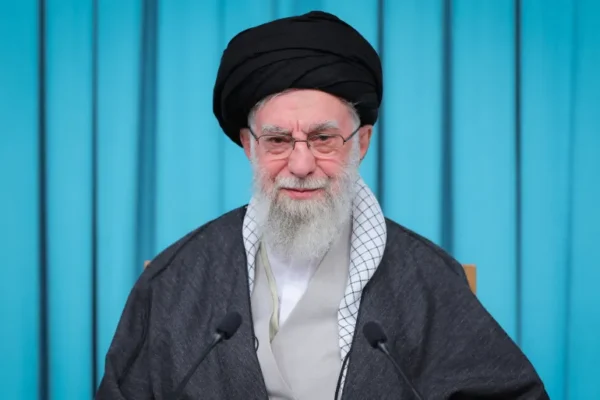
Khamenei Rules Out Talks with US Over Iran’s Nuclear Programme
Iran’s Supreme Leader Ayatollah Ali Khamenei has ruled out any direct negotiations with the United States over the country’s nuclear programme, calling such talks a “sheer dead end” and accusing Washington of attempting to dictate terms rather than engage in genuine diplomacy. Khamenei’s remarks, broadcast on Iranian state television, came as Iranian Foreign Minister Abbas Araghchi met with diplomats from Germany, France, and the United Kingdom — known as the E3 — along with European Union foreign policy chief Kaja Kallas. The talks, held on the sidelines of the United Nations General Assembly in New York, focused on the looming reimposition of sanctions, expected to take effect within days. “The US has announced the result of the talks in advance,” Khamenei said. “The result is the closure of nuclear activities and enrichment. This is not a negotiation. It is a diktat, an imposition.” His comments followed US President Donald Trump’s speech at the UNGA, in which he vowed that Iran would “never possess a nuclear weapon” and labeled the Islamic Republic the “world’s number one sponsor of terror.” Trump has continued to push a hardline stance, despite mounting tensions in the region and global calls for diplomacy. The diplomatic impasse comes in the wake of a failed UN Security Council resolution that would have extended sanctions relief for Iran. The E3 accuse Tehran of stockpiling enriched uranium well beyond limits set by the 2015 nuclear agreement — the Joint Comprehensive Plan of Action (JCPOA) — which Trump unilaterally withdrew from in 2018 during his first term. That agreement, signed between Iran and six world powers, aimed to lift economic sanctions in exchange for strict limits on Tehran’s nuclear activities. However, Trump reimposed sanctions under his “maximum pressure” campaign, a strategy that President Joe Biden continued despite initially opposing it. European nations have signaled willingness to delay the return of sanctions — if Iran resumes direct talks with the US, allows full access to its nuclear sites by UN inspectors, and provides a clear account of the more than 400kg of highly enriched uranium the International Atomic Energy Agency (IAEA) says it is holding. But progress has been limited. According to Al Jazeera’s James Bays, German Foreign Minister Johann Wadephul said the Tuesday meeting “didn’t go particularly well.” EU foreign policy chief Kaja Kallas added, “Diplomacy has a chance. The deadlines are running, and let’s see. We need to see some real action also on the Iranian side.” Iran maintains that it is not pursuing nuclear weapons and insists on its right to develop nuclear energy for peaceful purposes. Khamenei reiterated this in his speech, affirming that Tehran would not yield to international coercion. Tensions escalated dramatically in June after Israel, with support from the US, launched a 12-day military operation against Iran, targeting several nuclear sites. The strikes followed a ruling by the IAEA’s board that Iran was failing to comply with international nuclear safeguards. Iran responded by accusing Israel and the US of violating international law and ramping up regional instability. Last week, the UNSC voted against permanently lifting economic sanctions on Iran, a decision Tehran slammed as “politically biased.” That vote followed a 30-day ultimatum issued in August by the E3, warning of renewed sanctions unless Tehran met its nuclear obligations. Iran has threatened to suspend cooperation with the IAEA if sanctions are reinstated. On Monday, several hardline Iranian lawmakers called for the country to start developing a nuclear bomb, citing fears that sanctions could reignite conflict with Israel. If no agreement is reached by Saturday evening, the so-called “snapback” mechanism will automatically trigger the return of wide-ranging international sanctions, freezing Iranian assets abroad, halting arms sales, and targeting Iran’s ballistic missile programme. Still, there may be a narrow path forward. IAEA chief Rafael Grossi told reporters on Tuesday that a team of inspectors is en route to Iran, prepared to resume monitoring activities if a last-minute deal is struck. “Everything is possible. Where there is a will, there is a way,” Grossi said. “We have our inspectors, and inspectors are on the way, and there is the possibility to start on this work, depending on the political will of Iran.”

